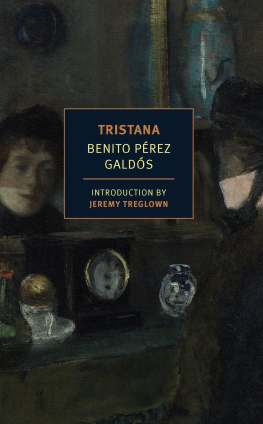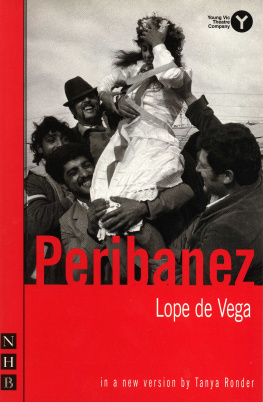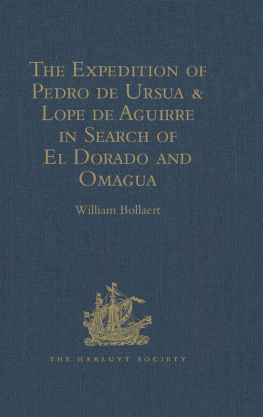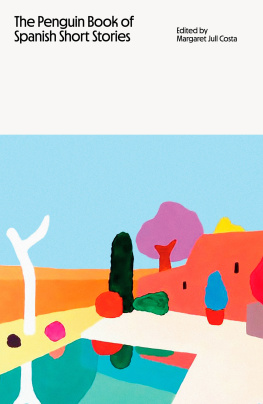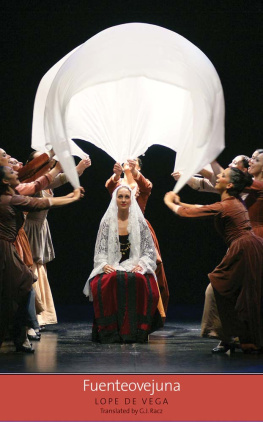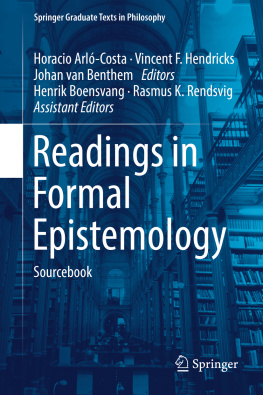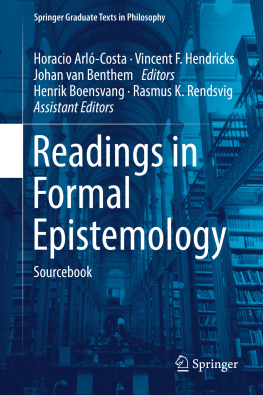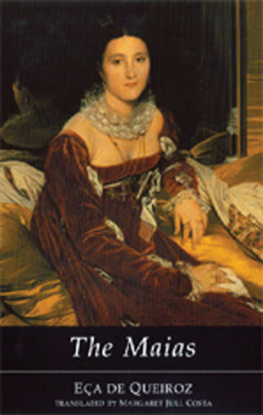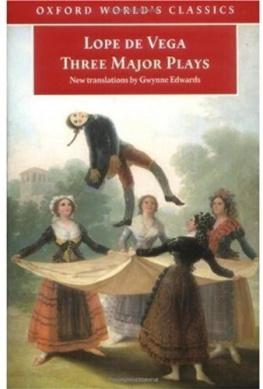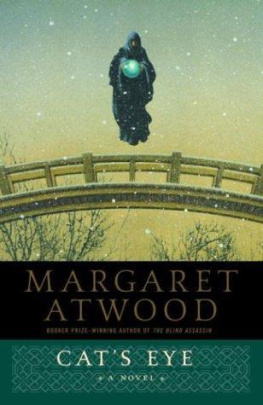TRISTANA
BENITO PREZ GALDS
Translated from the Spanish by
MARGARET JULL COSTA
Introduction by
JEREMY TREGLOWN
NEW YORK REVIEW BOOKS

New York
THIS IS A NEW YORK REVIEW BOOK
PUBLISHED BY THE NEW YORK REVIEW OF BOOKS
435 Hudson Street, New York, NY 10014
www.nyrb.com
Translation copyright 2014 by Margaret Jull Costa
Introduction copyright 2014 by Jeremy Treglown
All rights reserved.
Cover image: Daro de Regoyos y Valds, Portrait of Miss Jeanning, 1885; Bilbao Museum of Fine Arts, Bilboko Arte Ederren Museoa / Museo de Bellas Artes de Bilbao.
Cover design: Katy Homans
The Library of Congress Cataloging-in-Publication Data
Prez Galds, Benito, 18431920.
[Tristana. English]
Tristana / by Benito Prez Galds ; translated by Margaret Jull Costa ; introduction by Jeremy Treglown.
1 online resource. (New York Review Books classics)
Description based on print version record and CIP data provided by publisher; resource not viewed.
ISBN 978-1-59017-792-1 ISBN 978-1-59017-765-5 (alk. paper)
I. Costa, Margaret Jull, translator. II. Title.
PQ6555
863'.5dc23
2014025387
ISBN 978-1-59017-792-1
v1.0
For a complete list of books in the NYRB Classics series, visit www.nyrb.com or write to: Catalog Requests, NYRB, 435 Hudson Street, New York, NY 10014.
TRISTANA
INTRODUCTION
WITHIN a few pages, two people have taken over our imaginations. In some ways their predicaments are formulaic: an aging, self-mythologizing, predatory yet generous man lives with an attractive, passionate, much younger woman who is beginning to sense her separate potential. Were warned early on that although people feel themselves to be unique and complex, their specialness is generally an amalgamation... of the ideas floating around in the metaphysical atmosphere of the age, like... invisible bacteria. This is part of what makes Tristana a novel of the late nineteenth century rather than just a folktale. The story will be ironic; it will be about the ordinary illusion of specialness, yet it will also reinforce that illusion.
From the outset, matters seem unlikely to end well. Socially speakingin the terms of Henry James, sayTristanas position is not so much ambiguous as scarcely mentionable. Benito Prez Galds was Jamess exact contemporary and understood his society no less well than James did his own, but this isnt a novel by James or about his world, and its ironies are more robust. Tristana, were told in the riddling way of a folktale, was neither daughter, niece, or wife to Don Lope, but she belonged to him. Here, the always fluid narrative viewpoint is that of local gossip. She belongs to him, people say, like a tobacco pouch, and if thats a double entendre, so its probably meant to be. Tristana isnt just a receptacle, though, nor is she nada, which people also say about her. Galds liked womenreally liked them, as individualsand his novels are keenly alert to what it was to be them. Its striking how many of his stories have womens names. Tristana was published in 1892 and by then every Western reader knew Madame Bovary and Anna Karenina, but those are about married women who have taken their husbands names. Few of the great pre-twentieth-century fictions written by men take their titles unequivocally from a heroine (Pamela is an exception; Evelina and Emma are by women writers; Eugnie Grandet and Thrse Raquin come close but are so called because of the different kinds of power the heroines eponymous fathers and cousins have over them). Yet Galds wrote Marianela (1878) and Fortunata and Jacinta (1887) as well as Tristana, and the third of these shows signs of wanting to become a feminist work. Its substance, according to one contemporary critic, is the wakening of the consciousness of a woman who rebels against a society that condemns her to everlasting shame, and is incapable of offering her a respectable way of earning her living. The reviewer was Spains first important woman novelist and first woman academic, Emilia Pardo Bazn. As it happens, she and Galds had not long before ended a love affair, so she may be assumed to have read the story with particular interest. He was forty-nine, the same age at which his rou heros counting of the years stuck fast... as if an instinctive terror of the number fifty had halted him on the much-feared boundary of the half century. Don Lope is fifty-seven when the book opens, and both he and, increasingly, Tristana realize that whether or not his arithmetic is stuck, he wont get any younger. But aging isnt mathematically regulated, and in Tristanas case it will be violently accelerated by illness and surgery.
How the reader interprets this disabling misfortune to a large extent determines how the book is understood and evaluated. Pardo Bazn and, following her, some recent critics have seen it as at best an arbitrary way of moving the plot along, at worst a peculiarly male kind of fictional revenge on a woman for daring to be free (Tristanas romance with Horacio begins, after all, on one of the long walks she used to take with the maid, Saturna, despite the crude old Spanish proverb that said A womans place is at home with a broken leg). In life, though, illness and disability do afflict people and alter their relationships, and generally in ways that seem to have no meaning. Galdss plotting may be rough-and-ready, but its all too real. Among the realities that concern him is the role played in life by luck.
Were nudged by the backstory into wondering where things began to go wrong for Tristana (does her name imply something essentially sad in her?), or for any of the other characters. Like most women in her world, she has been given next to no educationthis even though her mother, Josefina, had literary ambitions. Her father, Antonio, was unlucky with money; only Don Lopes generosity saved the family from ruin. Released from prison, the demoralized Antonio soon dies, and his widow falls victim to what would now be called an obsessive-compulsive disorder. (How vividly madness draws out Galdss always observant sympathy.) Josefina dies, too, handing her daughter over to Don Lope to look aftera responsibility that he abuses, and not only in todays terms. The narrative asserts, albeit in Galdss dry, hard-to-gauge way, that Don Lopes moral sense lacked a vital component, and like some terribly mutilated organ, it functioned only partially and suffered frequent deplorable breakdowns. We hear about this mutilacin long before Tristana is operated on, but it seems relevant that the same word is used then.
Others have been unlucky, too. Saturnas husband was killed in a workplace accident, so she became Don Lopes servant and put her son into institutional care, along with children born blind or deaf, whose plights Galds again dwells on. (Luis Buuel makes more of this boy in his powerful, very free film adaptation.) Don Lope endures the consequences of the liberality he seems to have been born with, and which is one of his more appealing traits. Yet this is no victim culture. Under siege from her sexually remorseless guardian, Tristanawho is in her early twentiesnonetheless finds moments of brief, pale happiness, tiny hints of what the pleasures of love might be. She will experience them more fully with Horacio. Shocked when she wakes up to the situation shes in, shes also realistic about it: honest both about her seducers good qualities and about the extent to which her problems derive from her upbringing and the values of her society. And while shes a fantasist, shes also pragmatic: enterprising and independent in her outings to different parts of Madrid; quick to make the most of her affair with Horacio; brave in physical adversity. If anyone is self-pitying here, its the rich young artist to whose tales about his dreadful upbringing Tristana listens so eagerly. Horacio is the eligible man who cant or wont commit, which is lucky, in a way, given that commitment is something Tristana doesnt want.

